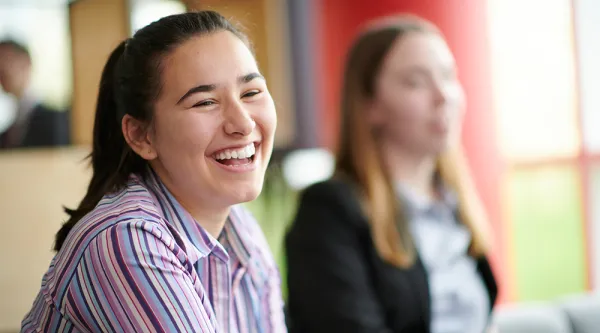CGI member Annette Fairweather has been really pleased to see the stigma around mental health lifting in recent years. In this article she shares more about being a Mental Health First Aider and what we’re doing to support mental health and wellbeing at CGI.
June 2022
I first became a Mental Health First Aider at CGI in May 2016, at the start of our MHFA scheme. Having lost friends and colleagues to suicide and experienced my own bouts of anxiety and depression, I felt a deep personal connection to the initiative. I was also aware of a lot of people around me every day who were suffering from extreme stress and saw how vital it was for them to have someone to reach out to – someone to lend a non-judgemental ear and just listen.
As employees, we spend so much time at work and should be aware of how much both our own and our colleagues’ mental health can impact us. We really need to recognise when mental health is negatively affecting us in the office and playing out into other areas of our life too. It can shape everything.
The first step is maintaining awareness
There are two aspects to this. Firstly, it’s being conscious of your own mental health – recognising when anxiety or stress has gone beyond the norm and is no longer motivating you, but rather slowing you down and impacting everything you do in a negative way. It might be tasks taking longer or feeling constantly tired or irritable and taking things the wrong way.
Secondly, it’s recognising when someone else needs help – understanding when a colleague is struggling and making sure they know there’s somewhere they can go for support and how to access it.
When mental health in the workplace is good, there’s a general sense of physical, emotional and social wellbeing that enables everyone to function better. People are more positive and alert and contribute more and are more able to deal with the irritations and stresses that can pop up in any job. There’s no doubt it has a huge impact on the whole atmosphere of the company.
My role as a Mental Health First Aider
In my role as a MHFA, I am available to anyone who needs support. You can contact me via phone, email, Teams, or a great app we’ve built that lets members place a call for help to all the MHFAs in the office – the first one to respond takes the call.
I find that I help people with a mix of personal and work-related issues, from parenting and health problems to interpersonal problems with colleagues and managers or just feeling overwhelmed by their work. I am there to listen and give them the time and space they need to talk. I offer suggestions for how to deal with certain problems, or perhaps additional services that can help them like our Member Assistance Program. Sometimes I’ll suggest speaking to their GP.
Some members just want one call to point them in the right direction. Others want regular chats and advice. It just depends on their situation, and I’m always happy to provide whatever level of contact and support they need.
Utilising CGI's mental health resources
CGI offers a wealth of amazing member resources that promote good mental health and wellbeing. I’ve used a number of them myself. Networks within CGI such as our Women’s Health network have been incredibly helpful to me – the Women’s Network has focused calls on female matters like menopause and it’s so helpful having a forum to discuss my experiences and ways of coping with others going through the same thing.
I also enjoy the mindfulness sessions run by our Oxygen team, and the Masseur who comes by to give us massages! And the events run by the sports and social club we can partake in.
We also make sure all of our MHFAs check in on each other regularly. Sometimes we need help as well. We have all-hands calls and office-specific calls where we can share information and make sure we are all okay.
I have to say I’ve been really pleased to see the shift in attitudes towards mental health in the past few years. I see the stigma around anxiety and depression lifting through a focused effort at CGI to drive awareness and support from the top down and it makes a really big difference.






